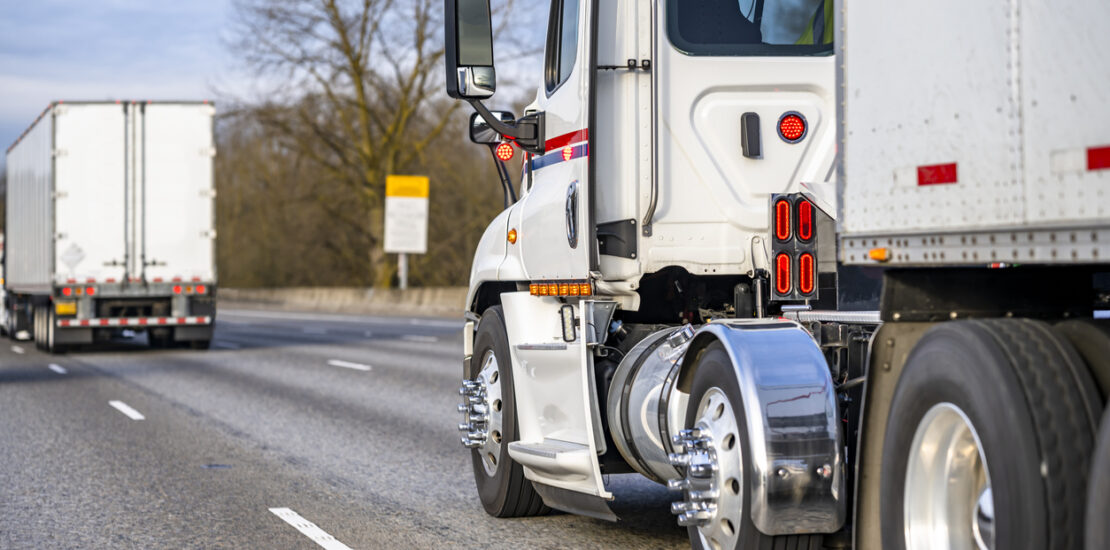- March 19, 2024
- Posted by: Sergey Grushetskiy
- Category: Semi Truck Insurance

Insurance is required for all types of commercial trucks — for protection on and off the roadway. This includes semi-trucks, as well as tow trucks, delivery trucks, garbage trucks, and all other trucks used for commercial purposes.
Because each of these is very different, their insurance needs will vary, too. So, here’s everything you need to know about the insurance requirements for different types of commercial trucks.
What is Commercial Truck Insurance?
Commercial truck insurance is a policy that covers you financially in such instances where you have an accident or something happens to your cargo. Although it protects in much the same way as auto insurance, it is quite different.
The type of insurance you need and the amount will depend on the type of commercial truck you drive, where you drive it, and what you haul. And there are requirements concerning this coverage at both the state and federal levels.
Taking a close look at how these sets of commercial truck insurance requirements pertain to you can give you a good idea of the specific coverage you need.
Who Is Required to Have Commercial Truck Insurance?
Let’s say you operate a commercial truck but you do not own it, do you need commercial truck insurance? If you are a contractor, are you required to have your own insurance policy?
The rules can get a bit cloudy when it comes to who is responsible for what — and the specific details of the coverage needed. Hopefully, this makes it clearer.
You need commercial truck coverage if you:
- Own a commercial truck
- Operate a commercial truck
- Use your truck to conduct business
- Are a trucking contractor
- Transport cargo in your truck
In other words, if you are involved in commercial trucking, you are going to need commercial insurance.
Types of Commercial Trucking Insurance
Below is a general overview of the types of the most common commercial truck insurance coverages.
- Primary Auto Liability: This type of insurance is required by federal regulation in case a third party becomes injured due to an accident.
- General Liability: Protection for bodily or property damage due to a crash caused by the driver.
- Physical Damage: Coverage for instances of vandalism, theft, collision, or natural disasters.
- Bobtail: Insurance protection for when the truck is being driven while not being used for commercial purposes.
- Motor Truck Cargo: Protects you in case your cargo is lost or damaged.
- Rental Reimbursement: Provides you with an allowance for a rental truck when yours is being repaired.
- Trailer Interchange: Physical damage protection when hauling a trailer under an interchange agreement.
- Medical Payment: Covers the cost of medical bills if injured due to an accident that was not your fault.
- Uninsured/Underinsured Motorists: If someone hits you without liability insurance, this will cover you.
- Reefer Breakdown Coverage: Necessary if driving a refrigerated truck that may break down resulting in lost cargo.
What the FMCSA Says About Commercial Truck Insurance
Are you an interstate commercial trucker?
It is the Federal Motor Carrier Safety Administration that sets the requirements for these truckers when it comes to certain levels of coverage. You will need the minimum to be legally covered as required by federal law.
Here are the FMCSA requirements:
- $1,000,000 in coverage for damages should you have an accident
- $300,000 in coverage for less than 10,000 of non-hazardous cargo — additional weight in cargo will result in an increased cost
- $1,000,000 is required for transportation of oil or hazardous materials
Keep in mind that your specific commercial truck insurance policy will be put together based on your specific needs.
Need Commercial Truck Insurance?
Our team of semi-truck financing experts at 10-4 Financing can get you the best available leasing options — and commercial truck insurance, too.
Want a quote? Have questions? Contact us today.
